Filter by

Media resistance : protest, dislike, abstention
This book is about those who dislike, protest, and try to abstain from media, both new and old. It explains why media resistance persists and answers two questions: What is at stake for resisters and how does media resistance inspire organized action? Yet, despite the interest in media scepticism and dislike, there seems to be no book on the market discussing media resistance as a phenomenon in…
- Edition
- -
- ISBN/ISSN
- 9783319464992
- Collation
- vii, 153p. : ill.
- Series Title
- -
- Call Number
- 302.23 SYV m

Digital peripheries : the online circulation of audiovisual content from the …
This is an open access book. Media industry research and EU policymaking are predominantly tailored to large (and, in the latter case, Western) European markets. This open access book addresses the specific qualities of smaller media markets, highlighting their vulnerability to global digital competition and outlining survival strategies for them. New online distribution models and new trends i…
- Edition
- -
- ISBN/ISSN
- 9783030448509
- Collation
- XI, 302 p.
- Series Title
- Springer Series in Media Industries
- Call Number
- 302.231 DIG d
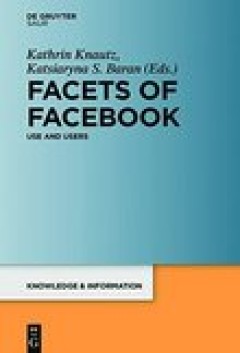
Facets of facebook: use and users
The debate on Facebook raises questions about the use and users of this information service. This collected volume gathers a broad spectrum of social science and information science articles about Facebook.Facebook has many facets, and we just look forward above all to the use and users. The facet of users has sub-facets, such as different age, sex, and culture. The facet of use consists of sub…
- Edition
- -
- ISBN/ISSN
- 9783110418163
- Collation
- 339 p.; 23 cm.
- Series Title
- Knowledge and Information
- Call Number
- 302.30285 FAC f
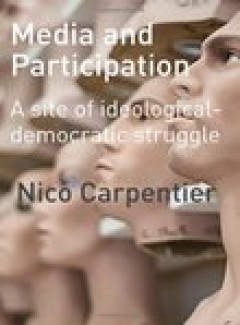
Media and participation: a site of ideological-democratic struggle
Participation has become fashionable again, but at the same time it has always played a crucial role in our contemporary societies, and it has been omnipresent in a surprisingly large number of societal fields. In the case of the media sphere, the present-day media conjuncture is now considered to be the most participatory ever, but media participation has had a long and intense history. To dea…
- Edition
- -
- ISBN/ISSN
- 9781841504070
- Collation
- 408 p.; 22 cm.
- Series Title
- -
- Call Number
- 302.30285 CAR m

Human computer confluence. Transforming human experience through symbiotic te…
Human-computer confluence refers to an invisible, implicit, embodied or even implanted interaction between humans and system components. New classes of user interfaces are emerging that make use of several sensors and are able to adapt their physical properties to the current situational context of users.A key aspect of human-computer confluence is its potential for transforming human experienc…
- Edition
- -
- ISBN/ISSN
- 9783110471137
- Collation
- 330 p.; 22 cm.
- Series Title
- -
- Call Number
- 302.30285 HUM h
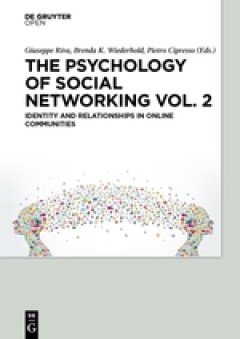
The Psychology of social networking Vol. 2. Identity and relationships in onl…
Using a novel approach to consider the available literature and research, this book focuses on the psychology of social media based on the assumption that the experience of being in a social media has an impact on both our identity and social relationships. In order to ‘be online’, an individual has to create an online presence – they have to share information about themselves online. Thi…
- Edition
- -
- ISBN/ISSN
- 9783110473858
- Collation
- 246 p.; 23 cm.
- Series Title
- -
- Call Number
- 302.30285 RIV p
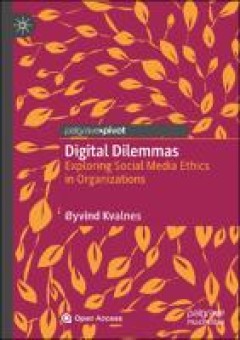
Digital dilemmas : exploring social media ethics in organizations
Social media is at the core of digital transformations in organizations. Facebook, Twitter, LinkedIn, and other social media platforms widen the scope for rapid and effective communication with stakeholders. They also create a range of new and challenging ethical dilemmas. This open access book categorizes the dilemmas organizations across a range of industries can face when they implement soci…
- Edition
- -
- ISBN/ISSN
- 9783030459277
- Collation
- IX, 85 p.
- Series Title
- -
- Call Number
- 006.754 KVA d
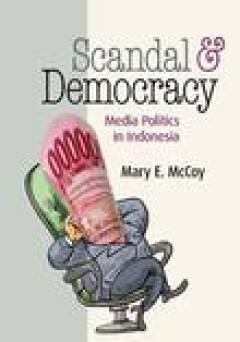
Scandal and democracy: media politics in Indonesia
After a nation has transitioned from authoritarianism to democracy, how are democratic norms most effectively fostered and maintained? This book uses as its case study Indonesia after the fall of the dictator Suharto to reveal that a contentious, even scandal-obsessed press can actually prove extremely useful for an emergent democracy. A society that can tolerate and protect journalists willing…
- Edition
- -
- ISBN/ISSN
- 9781501731037
- Collation
- xiii, 203 p.; 22 cm.
- Series Title
- -
- Call Number
- 302.2309598 MCC s
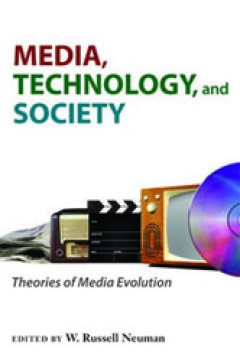
Media, technology, and society: theories of media evolution
In Media, Technology, and Society, some of the most prominent figures in media studies explore the issue of media evolution. Focusing on a variety of compelling examples in media history, ranging from the telephone to the television, the radio to the Internet, these essays collectively address a series of notoriously vexing questions about the nature of technological change. Is it possible to m…
- Edition
- -
- ISBN/ISSN
- 9780472070824
- Collation
- -
- Series Title
- -
- Call Number
- 302.23 MED m

Media, erotics, and transnational Asia
Drawing on methods and approaches from anthropology, media studies, film theory, and cultural studies, the contributors to Media, Erotics, and Transnational Asia examine how mediated eroticism and sexuality circulating across Asia and Asian diasporas both reflect and shape the social practices of their producers and consumers. The essays in this volume cover a wide geographic and thematic range…
- Edition
- -
- ISBN/ISSN
- 9780822345596
- Collation
- 392 p.; 22 cm.
- Series Title
- -
- Call Number
- 302.23095 MED m
 Computer Science, Information & General Works
Computer Science, Information & General Works  Philosophy & Psychology
Philosophy & Psychology  Religion
Religion  Social Sciences
Social Sciences  Language
Language  Pure Science
Pure Science  Applied Sciences
Applied Sciences  Art & Recreation
Art & Recreation  Literature
Literature  History & Geography
History & Geography